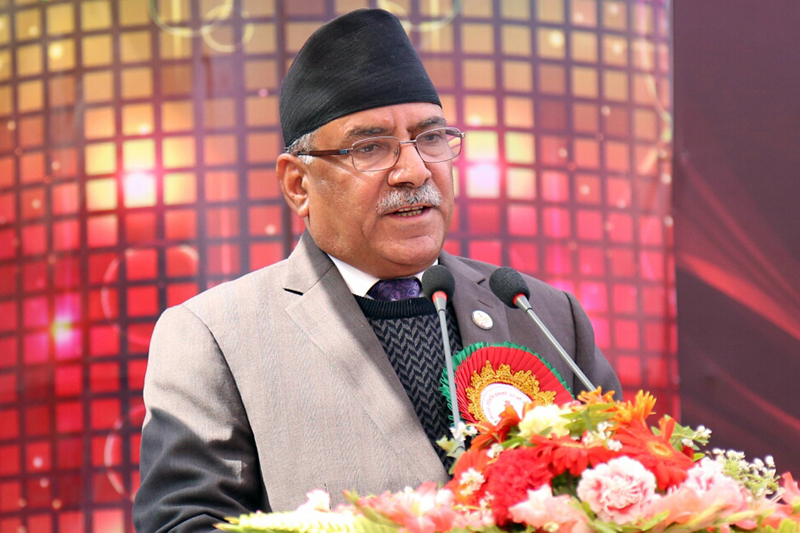Lawyers tell PM LBRC report can be revised
Kathmandu, February 1
Office bearers of Nepal Bar Association and some lawyers have told Prime Minister Pushpa Kamal Dahal that the government was free to revise the Local Bodies Restructuring Commission’s report.
LBRC had submitted its report on January 6 recommending creation of 719 local bodies, which was opposed by lawmakers from both the ruling and opposition parties.
Madhesi parties opposed the report saying it did not ensure local bodies in proportion to the population of Madhes.
General Secretary of NBA Khamma Bahadur Khati, who was among the lawyers invited for consultation, said that he told the PM that the implied meaning of the phrases of Article 56 and Article 295 was that the government could take suggestions from the LBRC and revise the report as it had assigned the ToR to the commission.
Former NBA President Prem Bahadur Khadka said that the phrases used in Article 295 of the constitution meant that the government could revise the report. “It would be wrong to argue that the government cannot revise the LBRC’s report as it would be wrong to argue that a land revenue officer cannot change any content of a note prepared by his subordinate section officer,” he argued.
Former vice president of NBA Surendra Kumar Mahto, told THT that almost all the lawyers told the PM that the government was free to see whether or not the LBRC’s report was in conformity with the ToR assigned to the commission and the criteria of the commission’s works.
Mahto said the ToR assigned to the LBRC clearly stated that the commission would make recommendations/suggestions to the government and that implied that the commission’s works were merely suggestive and not binding on the government. “LBRC is not a constitution making body, and therefore, its recommendation cannot have binding effect on the government,” said Mahato.
He said the government could treat LBRC’s report as major reference point while replacing the Local Self Governance Act, 1999 with another similar act that would fix the boundaries of the local bodies.
Mahato said the LBRC had acted irresponsibly as it finalised the report without visiting some districts of the Madhes and without recommending the creation of special, autonomous and protected areas as assigned by the law.
Advocate Dipendra Jha said the government was free to see whether or not the LBRC’s report met the criteria fixed for its job, and if not, the government could revise it.
Lawyer Ram Narayan Bidari who is also a CPN-Maoist Centre lawmaker said the government, which had fixed the ToR for the commission was free to revise the report if it deemed that the report was not in conformity with the ToR. “But it does not mean that the government should reject the report or ignore it,” he added.
Article 295 (3) stipulates: The Government of Nepal shall constitute a commission for the determination of the number and boundaries of village bodies, municipalities and special, protected or autonomous regions to be formed under clauses (4) and (5) of Article 56. The commission must determine the number and boundaries of the village bodies, municipalities and special, protected or autonomous regions in accordance with the criteria set by the Government of Nepal.






